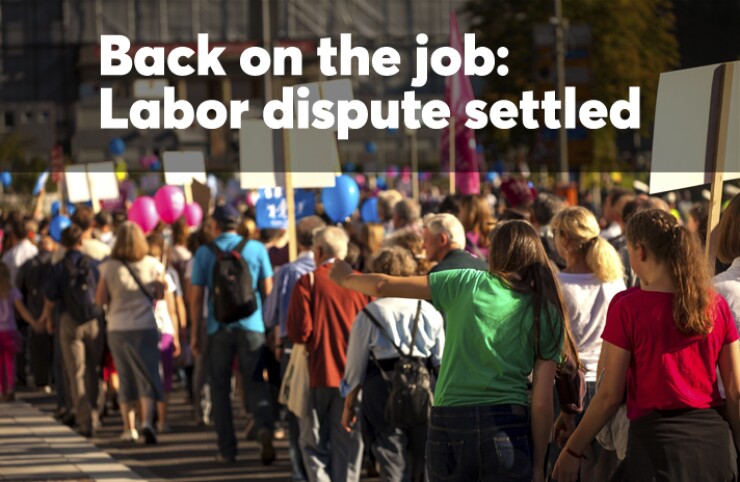More than 100 unionized employees are back at work at People First Federal Credit Union in Allentown, Pa. after reaching an agreement with management to end a five-day strike.
On Friday, Aug. 10, 114 employees went on strike after contract negotiations with the $579 million-asset credit union broke down.

“The contract expired on December 31st 2017, and the sticking points were, historically, employees would accept a 50 cents per hour [wage] increase and employees would get free healthcare,” Rusty Wetherspoon, vice president of Teamsters Local 773, told Credit Union Journal.
Representatives from People First FCU did not respond to Credit Union Journal’s request for comment before deadline. Two of the credit union’s branches are believed to have been forced to shut their doors temporarily as a result of the strike. When the work stoppage began, the credit union
Among the sticking points was how to pay for rising health care costs. The credit union was asking employees to pay more, however Wetherspoon said since most of the employees are tellers making a base wage of $11.70 per hour, the change to add in health insurance costs would have raised a new financial burden upon employees.
Both parties reentered negotiations on Aug. 14 and a new package was approved the following day. The new contract includes step raises, along with a general pay increase and a longevity increase. Tellers received a 30-cent pay increase from $11.70 to $12 and then received a general pay increase of 55 cents on top of that. For employees hired before Jan. 2018, a 1.75 percent longevity raise was implemented upon the prior two raises.
While contracts between the CU and union are typically five years, the new contract will not expire for five years. Employees will not be expected to contribute toward healthcare costs during the first three years, but beginning in year No. 4 there will be a minimum required contribution of $15 per month.
According to Wetherspoon, this is not the first time employees from People First have taken to the picket lines.
"They went on strike in March of 2000 [which appeared to be because of] wages,” said Wetherspoon. “At the time, the average worker was making $10 per hour and they moved up to $10.50 in the first year, [as well as] receiving a $500 signing bonus and 5 percent raise over a three-year contract."
While strikes in the credit union movement are rare, they do happen. Among the more recent examples:
- Employees at Marietta, Ga.-based Lockheed CU went on strike over pay and retirement issues in late 2011
- Tellers from
Cornerstone Community FCU took to the picket lines in Aug. 2008 , shutting down operations at at least two locations in a dispute over benefits
- At
First Ontario Credit Union in Hamilton, Ontario, Canada in the spring of 2007, police had to smash down the credit union’s door to remove 70 striking employees who had padlocked themselves inside the building after negotiations with management broke down.





